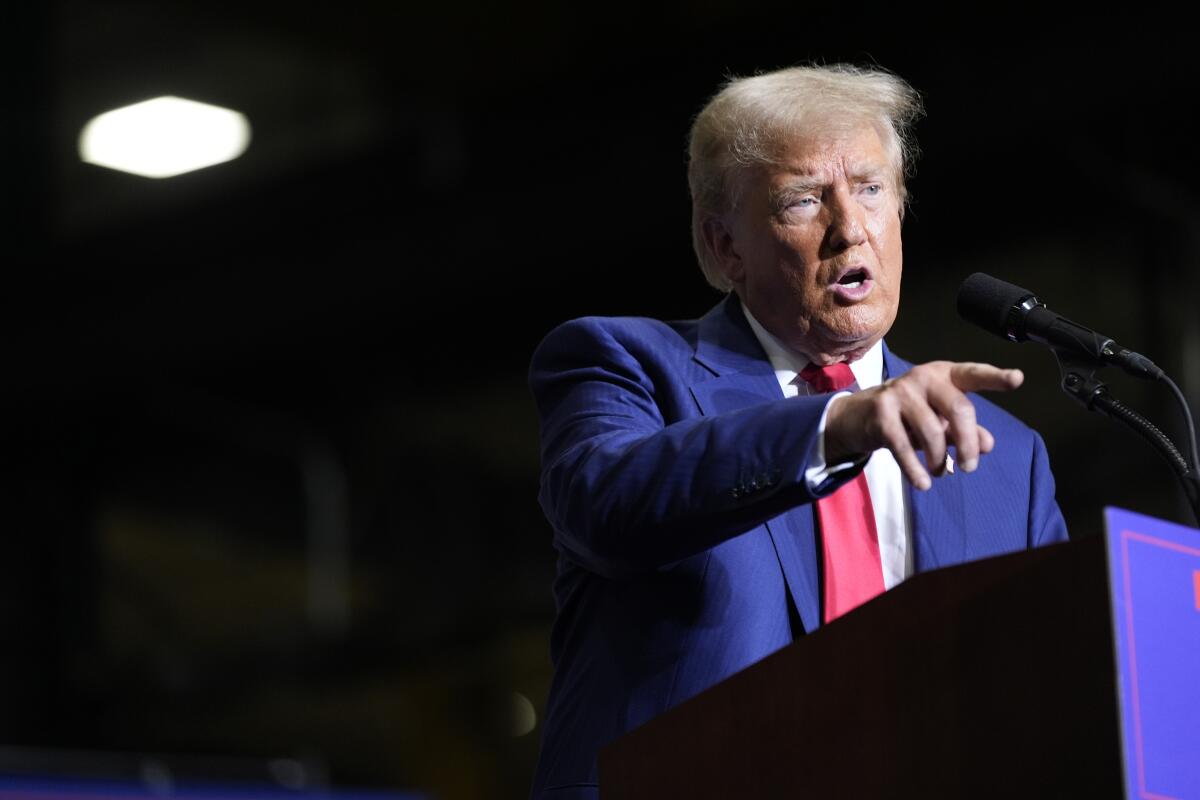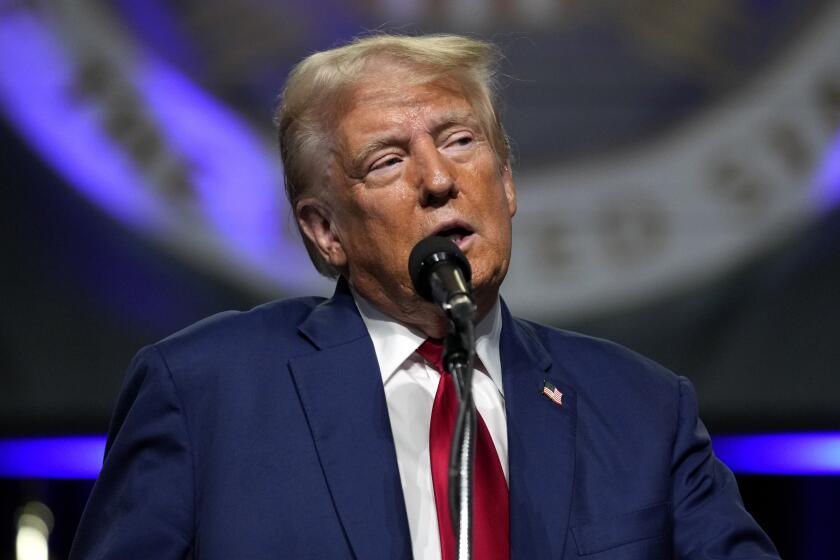Trump calls for universal coverage of IVF treatment, but offers no specifics

POTTERVILLE, Mich. — Former President Trump says that, if he wins a second term, he wants to make IVF treatment free, but he did not say how he would fund his plan or how it would work.
“I’m announcing today in a major statement that under the Trump administration, your government will pay for — or your insurance company will be mandated to pay for — all costs associated with IVF treatment,” he said at an event in Michigan. “Because we want more babies, to put it nicely.”
IVF treatments are notoriously expensive, and can cost tens of thousands of dollars for a single round. Many women require multiple rounds, and there is no guarantee of success.
The announcement comes as Trump has been under intense criticism from Democrats for his role in appointing the Supreme Court justices who cast decisive votes in overturning Roe vs. Wade, ending the constitutional right to an abortion.
The decision is expected to be a major motivator for Democrats in the 2024 election, and was a major theme at the party’s convention last week, most notably in Vice President Kamala Harris’ speech as she accepted the presidential nomination.
In response, Trump — who has repeatedly taken credit for his role in overturning Roe — has been trying to present himself as moderate on the issue.
In an interview with NBC ahead of the event, Trump — a Florida resident — also suggested that he would vote to repeal Florida’s six-week abortion ban, which limits the procedure before many women even know they are pregnant.
“I think the six weeks is too short. It has to be more time,” he said. “I am going to be voting that we need more than six weeks.”
Trump, in the interview, did not say how he plans to vote on Florida’s ballot measure on the abortion issue in November. But he repeated his past criticism that the six-week ban, signed into law by Republican Gov. Ron DeSantis last year, is too restrictive.
Trump has held conflicting positions on abortion over the years. After he considered various potential national cutoff times, he has said in recent months that regulating abortion should be “left to the states.”
As he has taken credit for overturning Roe, he has called it “a beautiful thing to watch” as states set their own restrictions. He also came out in favor of IVF and pushed lawmakers in Alabama to protect access after the state Supreme Court ruled that frozen embryos can be considered children under state law, sparking national backlash.
Trump’s running mate, Ohio Sen. JD Vance, said over the weekend that Trump does not support a national abortion ban.
“I can absolutely commit that,” Vance said when asked on NBC’s “Meet the Press” whether he could commit to Trump not imposing such a ban. “Donald Trump’s view is that we want the individual states and their individual cultures and their unique political sensibilities to make these decisions, because we don’t want to have a nonstop federal conflict over this issue.”
Vance also insisted Trump would veto such legislation if Congress passed it: “I mean, if you’re not supporting it as the president of the United States, you fundamentally have to veto it.”
An AP-NORC poll conducted in June found that more than 6 in 10 U.S. adults support protecting access to IVF, including more than half of Republicans. Only about 1 in 10 are opposed.
Trump also said Thursday that, if he wins, families would be able to deduct expenses for caring for newborns from their taxes.
Trump has been campaigning in Michigan and Wisconsin as he ramps up his battleground state travel heading into the traditional Labor Day turn toward the fall election. He is intensely focused on recapturing states he won in 2016 but lost narrowly in 2020.
Trump’s first stop was Potterville, Mich., near the state capital of Lansing, where he railed against the Biden administration over inflation. It was his third visit to the state in the last nine days and second this week after a speech to the National Guard Assn. in Detroit on Monday.
Later, he was headed to La Crosse, Wis., for a town hall moderated by former Rep. Tulsi Gabbard, who endorsed Trump in Detroit. It will be Trump’s first visit to Wisconsin since the Republican National Convention last month in Milwaukee, which ended three days before Biden dropped out of the race and made way for Harris.
Trump has struggled in recent weeks to pivot to his new race against Harris, whose candidacy has reinvigorated the Democratic Party.
He complained yet again of the switch on Thursday, asking the crowd, “How would you like to be me?”
Associated Press writers Colvin reported from New York, Cappelletti from Potterville, Beaumont from Des Moines. AP writer Christine Fernando contributed to this report from Chicago.
More to Read
Get the L.A. Times Politics newsletter
Deeply reported insights into legislation, politics and policy from Sacramento, Washington and beyond. In your inbox three times per week.
You may occasionally receive promotional content from the Los Angeles Times.










